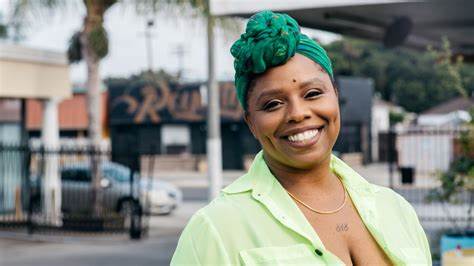April 4, 2022 Andrew Kerr
The national Black Lives Matter group purchased a $6 million mansion in a Los Angeles neighborhood with donor cash in October 2020 and then maneuvered to keep the purchase a secret, according to a report Monday.
BLM Global Network Foundation used a man with close business ties to the charity’s co-founder, Patrisse Cullors, to purchase the luxury mansion with the charity’s cash resources, according to a report by New York magazine. The property purchase came just two weeks after BLM received a $66.5 million cash infusion from its former fiscal sponsor on Oct. 6, 2020.
BLM used Pascall and the LLC as middlemen for the property purchase to “avoid exposing BLM’s assets to any litigation or liability,” BLM board member Shalomyah Bowers told the Washington Examiner on Monday. He added that the mansion does not serve as a personal residence.
Pascall is the financial manager for Cullors’s personal LLC, Janaya and Patrisse Consulting. He is also the chief financial officer for Trap Heals, an art company led by the father of Cullors’s only child, Damon Turner. Both Trap Heals and Janaya and Patrisse Consulting have received significant payments from Cullors’s activist groups, including BLM.
The $6 million Studio City property BLM reportedly purchased in October is the third known mansion purchased by the charity and its co-founder since the group raised at least $90 million during the nationwide unrest that followed George Floyd’s killing in May 2021.
BLM also used charitable resources to help BLM Canada purchase a mansion in Toronto in July 2021 for the equivalent of $6.3 million, the Washington Examiner previously reported.
And Cullors herself purchased a mansion in the majority-white Los Angeles neighborhood of Topanga Canyon in April 2021 for $1.4 million. BLM previously said no charitable resources were used to finance Cullors’s home purchase.
BLM has faced renewed scrutiny over its finances since the Washington Examiner reported in late January on the group’s lack of financial transparency. The report led multiple states, including California, to issue legal threats to BLM over its failure to report what it did with its 2020 financial windfall. BLM voluntarily shut down its ability to raise money in February, and Amazon booted the group from its charity platform, AmazonSmile, due to its compliance issues across the nation.
Internal BLM chat logs obtained by New York magazine show that BLM board member Bowers directed a private investigator to check investigative journalists looking into the charity. The magazine did not identify the reporters targeted by BLM.
An internal BLM strategy memo, obtained by the magazine on March 30, reportedly shows the charity’s leaders scheming to “deflate” the charity’s ownership of the mansion. The document reportedly said the property might be used as an “influencer house” for BLM-funded art projects.
The memo also described the mansion as a “safehouse” for the charity’s leaders who say their lives have been threatened by reporting on the group’s finances by media outlets such as the Washington Examiner.
However, the memo acknowledged that there were “holes in the security story,” notably, that the property had been used by Cullors on her personal YouTube channel.
The mansion’s patio was also used to film a one-year anniversary video for Floyd’s killing, which was uploaded to Cullors’s personal YouTube channel. The patio in the video also appears virtually identical to pictures of the patio on the property’s real estate listing.
Cullors, along with BLM leader Melina Abdullah and BLM co-founder Alicia Garza, railed against critics of Cullors’s personal real estate purchases in the Floyd anniversary video.
“I think they’ve attempted to cancel us, but they have not been successful in canceling us,” Abdullah said.
Abdullah later blasted critics for demanding accountability for their management of BLM’s millions.
“Who the f*** are you? You ain’t done s***,” Abdullah said. “I don’t need to be accountable to you. … I don’t know what accountability looks like with people that I don’t know and have never talked to.”
Paul Kamenar, an attorney for the watchdog group the National Legal and Policy Center, said Monday that Cullors’s use of BLM’s property for use on her personal YouTube channel appears to be an IRS violation.
“It appears that BLMGNF’s purchase and use of the house by Cullors and other insiders violate the IRS rule prohibiting the use of nonprofit assets for private benefit as well as self-dealing,” Kamenar told the Washington Examiner.
The internal BLM memo obtained by New York magazine also mentioned “Accounting/990 modifications,” which is an apparent reference to a Washington Examiner report that exposed the group pulling an accounting maneuver to delay reporting its 2020 financial windfall further.
Bowers told the magazine that the charity had “always planned” to disclose the $6 million property in legal filings, which are due mid-May.
Bowers added in a statement to the Washington Examiner that the property will serve as a “housing and studio space for recipients of the Black Joy Creators Fellowship,” a new BLM program announced on April 1 that Bowers said will provide “recording resources and dedicated space for Black creatives to launch content online and in real life focused on abolition, healing justice, urban agriculture and food justice, pop culture, activism and politics.”
Bowers added that BLM continues to address security concerns facing its leadership.
“The Black Lives Matter Global Network Foundation has faced numerous safety threats, both online and in person. As a common practice, the organization refrains from discussing its security operations,” he said.

